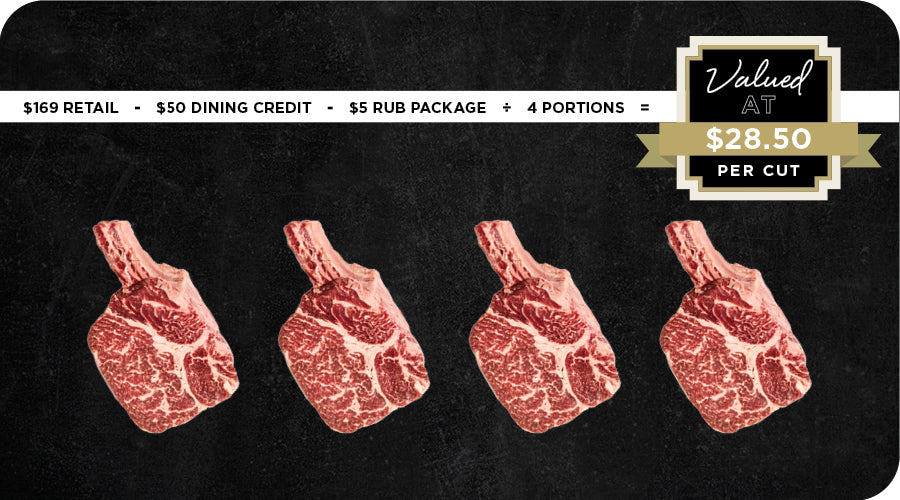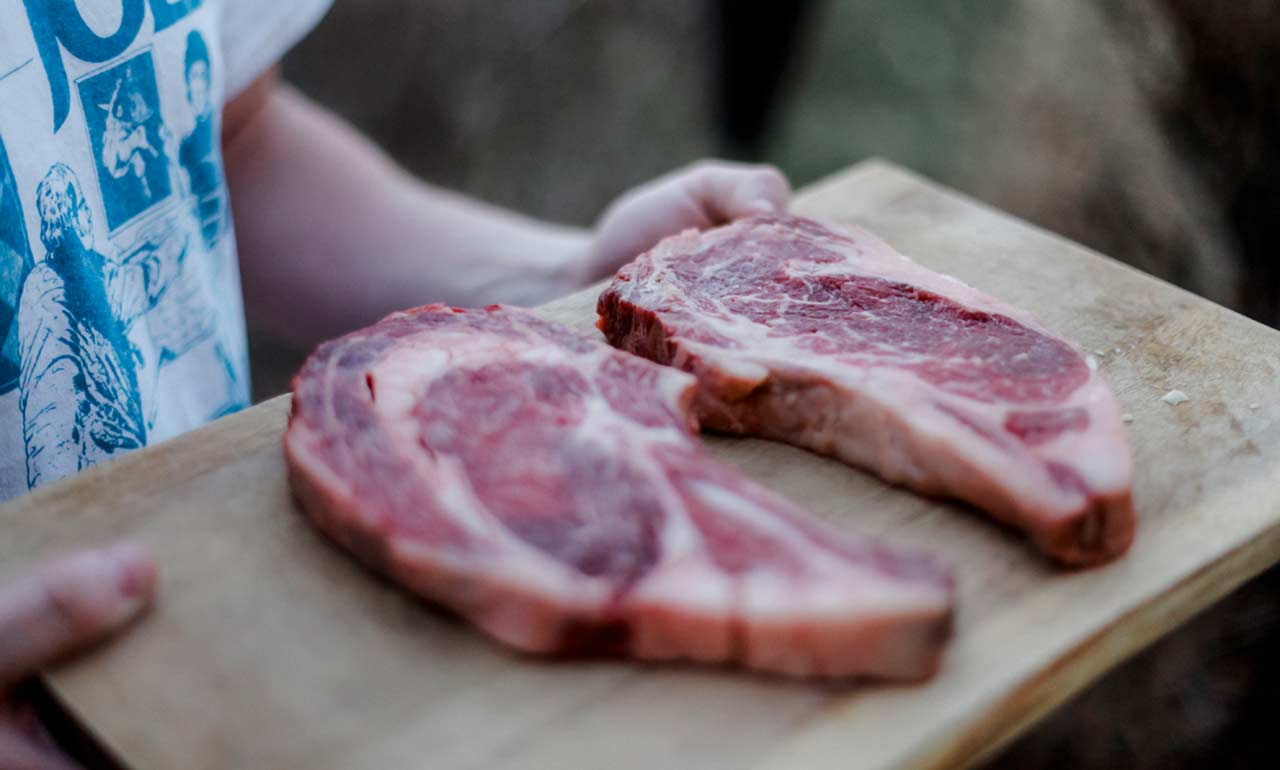Why Buying at a Regional Meat Market Guarantees Fresh, High-Quality Cuts
Buying at a neighborhood meat market offers distinct benefits that commonly go undetected by customers accustomed to larger retail chains. The effects of picking neighborhood extend past instant benefits, prompting a closer examination of what this selection truly means for both customers and the regional economic climate.
Advantages of Neighborhood Sourcing
In the realm of food purchase, the benefits of neighborhood sourcing stick out prominently. By buying meat from local markets, customers gain direct access to items that are commonly fresher and much more savory than those discovered in larger, commercial supermarkets. Neighborhood sourcing minimizes the time and distance food travels from farm to table, which not just improves taste yet also protects nutritional worth.

Additionally, local sourcing commonly gives openness pertaining to the beginnings of the meat. Customers can make inquiries concerning the farming techniques used, animal well-being standards, and whether the meat is grass-fed or organic. This details empowers buyers to make enlightened choices straightened with their worths.
Quality Assurance Requirements
Regional meat markets often stick to extensive high quality control standards that ensure the items supplied fulfill high security and quality criteria. These criteria normally include various stages of the meat manufacturing process, from sourcing to handling and storage space.
First, local markets frequently develop stringent distributor requirements, guaranteeing that just respectable ranches and producers are made use of - bagley meat market edwardsville il. This decreases the likelihood of contamination and promotes higher pet welfare criteria. Furthermore, many regional meat markets carry out regular examinations to validate that the meat is refined under hygienic conditions, better reducing wellness threats
Temperature level control is one more crucial facet of quality control. Local meat markets frequently keep an eye on refrigeration systems to maintain ideal storage space temperatures, guaranteeing that meat continues to be fresh and safe for usage. Moreover, the execution of traceability systems allows markets to track the beginning of their items, giving openness and accountability.
Lastly, personnel at neighborhood meat markets are usually educated to identify signs of wasting and understand appropriate handling techniques. This dedication to quality assurance not only boosts the overall standard of the meat yet also cultivates customer count on, making neighborhood meat markets a reputable source for top notch cuts.
Sustaining Neighborhood Farmers
Supporting neighborhood farmers is important for cultivating a lasting food system and boosting area strength. They straight add to the source of incomes of farmers in their area when customers select to go shopping at neighborhood meat markets. This not just sustains the neighborhood economic situation but likewise enhances the agricultural sector, ensuring that it remains feasible and lively.


Additionally, supporting local farmers promotes a feeling of area and link in between producers and consumers. It urges openness in food sourcing and imparts count on, as clients can establish partnerships with the people that elevate their food. This straight connection eventually causes an extra involved and educated public, which is essential for supporting for lasting farming techniques in the future.
Lasting Practices
Lasting methods in meat markets play a vital function in promoting environmental stewardship and making sure animal welfare. Regional meat visit their website markets commonly focus on sourcing their products from farms that implement ethical and lasting farming techniques. These methods include rotational grazing, which aids maintain dirt wellness and lowers carbon exhausts, together with lessening the use of antibiotics and hormonal agents in animals.
Moreover, neighborhood meat markets usually stress transparency in their supply chains. Customers are given with details relating to the origin of their meat, enabling them to make enlightened options that line up with their values. By sustaining local farmers who exercise sustainable methods, customers add to the conservation of biodiversity and the decrease of transport emissions related to long-distance meat distribution.
Additionally, numerous neighborhood meat markets take part in waste decrease techniques, such as making use of every component of the animal and promoting off-cuts that might or else go unsold. By fostering an extra lasting approach to meat consumption, these markets not only supply high-quality products but additionally contribute positively to the environment and animal welfare. Essentially, buying at a neighborhood meat market lines up customers with a broader activity towards moral and responsible food sourcing.
Personalized Consumer Service
Shopping at a meat market frequently incorporates more than just the items supplied; it is also concerning the experience and the partnerships built between clients and staff. Individualized customer support is a trademark of neighborhood meat markets, establishing them apart from larger grocery store chains. Educated personnel put in the time to understand individual client choices, making certain that each go to is customized to particular requirements.
Clients take advantage of experienced advice on cuts, cooking techniques, and prep work tips, fostering a sense of count on and commitment. This tailored interaction enables clients to ask concerns and look for suggestions, bring about educated investing in decisions. Team member typically keep in mind normal consumers and their choices, developing a welcoming atmosphere that grows area connections.
Additionally, individualized service encompasses special requests, such Look At This as custom cuts or particular preparation methods, which larger stores may not suit. This degree of interest reinforces the dedication of neighborhood meat markets to quality and consumer contentment.
In significance, individualized customer support not just enhances the purchasing experience however also ensures that consumers entrust to the best products suited to their cooking needs, making every visit a gratifying one.
Conclusion
In verdict, shopping at a local meat market provides many advantages, consisting of exceptional quality and high quality as a result of visite site decreased traveling times. Strict top quality control procedures improve transparency and ensure high criteria for products. Sustaining local farmers promotes community connections and strengthens the neighborhood economic climate, while sustainable methods add to ecological stewardship. Additionally, personalized customer care boosts the shopping experience, making regional meat markets a recommended choice for customers looking for both quality and honest factors to consider in their food sourcing.
The ramifications of selecting neighborhood extend past prompt advantages, motivating a closer examination of what this choice really means for both customers and the local economic climate.
Supporting regional meat markets likewise contributes to the regional economic situation. Local meat markets frequently check refrigeration systems to keep optimum storage temperatures, guaranteeing that meat stays safe and fresh for consumption.Local farmers are usually a lot more attuned to the details needs of their areas, expanding plants and increasing animals that line up with local tastes and choices. Sustaining local farmers fosters area relationships and reinforces the neighborhood economic climate, while sustainable practices add to ecological stewardship.